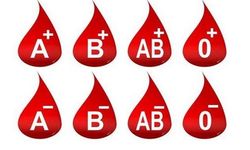Autumn depression often begins and ends in the same period. Although it is not seen as much in the summer and spring months, cases of depression are also observed. It begins towards the end of autumn and at the beginning of winter, and symptoms decrease from the sunny days of spring until the end of summer. According to research, seasonal depression is seen in 5% of the population. Seasonal depression can be seen in people of all ages. It generally occurs between the ages of 20-23 on average. In addition, research has proven that, like all other types of depression, it is more common in women than in men. If a person has a history, family structure, genetics or a bad experience, it is normal to experience this type of depression.
What Effects Seasonal Depression on Hormones?
In such cases, Melatonin and Serotonin hormones come into play. Melatonin is a hormone that regulates our sleep. Melatonin hormone increases when it is dark and begins to decrease when daylight increases. When melatonin increases, there is a decrease in energy and often drowsiness. The body relaxes and one may become inclined to sleep. Serotonin is popularly known as the happiness hormone. When we see the sun's rays, there is an increase in serotonin and it makes our mood happy. As the winter months approach and the days get shorter, the amount of serotonin decreases. That's why, according to researchers, it is certain that these two substances have a great impact on us.
What are its symptoms?
*The state of being sad,
*Despair and pessimism towards the world,
* Desire to sleep too much
* Inability to enjoy activities previously enjoyed,
*Loss of sexual desire,
* Constant desire to eat,
*Focus and concentration problems,
*While there is a state of minimizing social life, the person's symptoms in the Spring-Summer months are;
*Increase in sexual desire,
*Increased anxiety,
*Aggressive attitudes,
*Insomnia or other sleep-related problems,
*Can be seen as weight and appetite loss
How to Treat Seasonal Depression?
What distinguishes seasonal depression from other depression is that it lasts for at least two consecutive years and lasts only a few months during the season. It is not seen in other seasons. Seasonal Depression symptoms are divided into mild, moderate and severe. While individuals who have difficulty in living their daily lives recover only slightly, in severe cases, an increase in substance abuse and suicidal ideation can often be observed.
It can be treated with medication, psychotherapy, and phototherapy, also called light therapy. In short, phototherapy is performed by providing support to the client by using light sources that imitate daylight. It is continued until natural sunlight arrives, but according to doctors, too much may have side effects for those with eye diseases and light-sensitive skin. Exercise and outdoor walks may be recommended for people with mild symptoms.
To prevent seasonal depression, it is useful to take care to be outside even if the weather is cloudy. However, if you open your curtains and blinds and let in a little sunlight, you may feel your energy increase a little. It may also help you to switch to low-carb foods.











